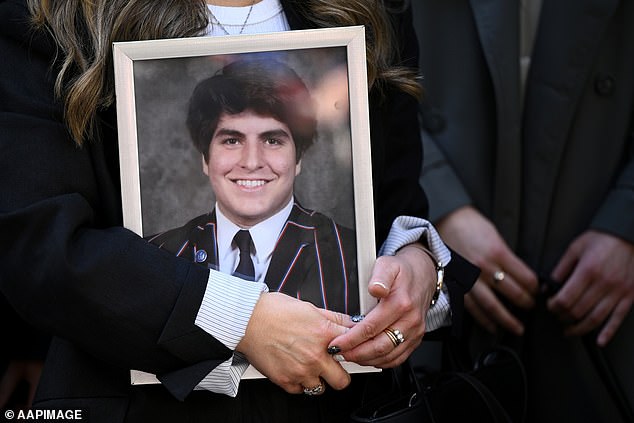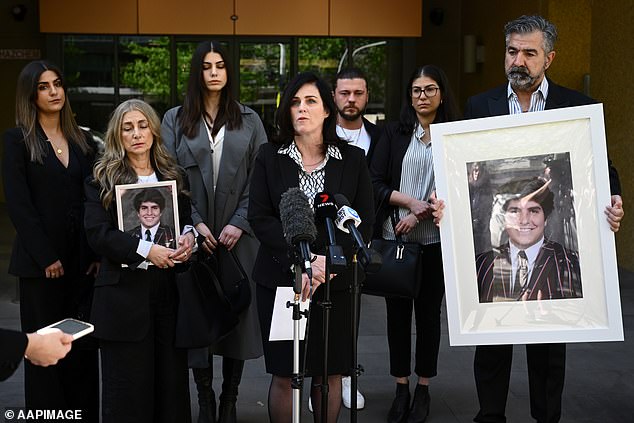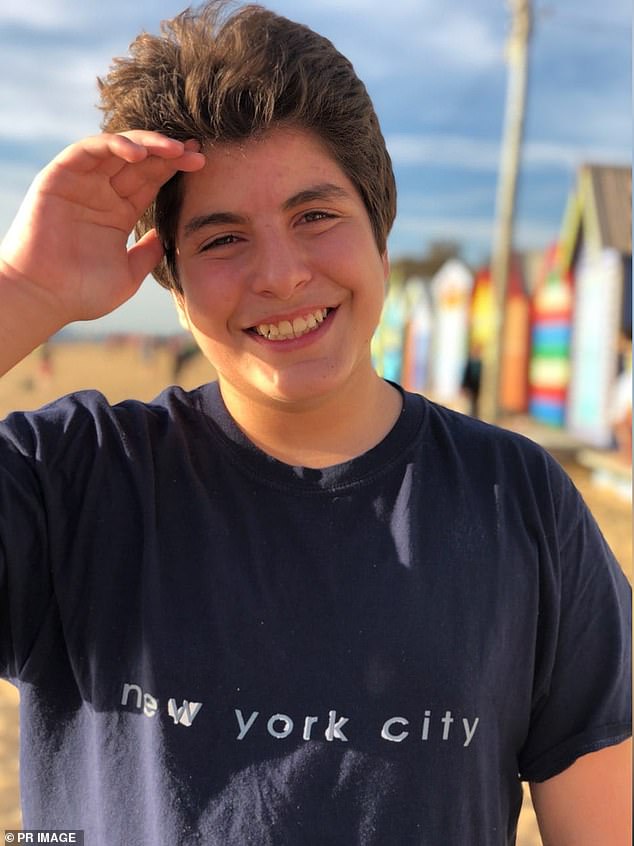A snort that James Tsindos developed while being taken to hospital was the “sliding doors moment” that healthcare staff missed that could have saved his life, a world-renowned doctor has said.
James suffered anaphylaxis after consuming a burrito bowl containing a sauce made from cashews that he ordered through the now-defunct food delivery app Deliveroo on May 27, 2021, an inquest heard on Friday.
The 17-year-old began experiencing allergy attacks due to his sensitivity to nuts, including swollen lips, nausea, tingling in his throat and abdominal cramps, prompting his father to call an ambulance.
Paramedics arrived at his Brighton home at around 2.50pm and designated him as a possible case of anaphylaxis despite finding no rashes or signs of difficulty breathing.
Paramedic Jonathon Hammond administered two doses of adrenaline five minutes apart, which relieved most of James’ symptoms, withholding a third due to lack of symptoms, and he was transferred to nearby Holmesglen Private Hospital as a precaution.
“He seemed comfortable (during the ambulance ride) and able to speak in clear sentences about the school and his interests,” Hammond told the Melbourne Coroner’s Court.
As he was wheeled through the hospital doors at 3.44pm, James told paramedics he was “wheezing”. He then used his asthma inhaler 15 times.
James Tsindos shielding his face from the sun at Brighton Beach Boxes in Victoria. He had a known allergy to certain nuts and died after consuming a small portion of a meal purchased through an online food delivery service.

A portrait of James Tsindos is held as Shari Liby, legal counsel for Slater and Gordon Medical Law, speaks to the media during the inquest into the death.
The teen was placed in an isolation room while Hammond performed a handover with nurses, which has been the subject of controversy over whether the nurses were informed about the wheezing symptom.
“It was one of the first things I (told them) and that’s why the nurse went to get the spacer,” Hammond said.
At 4:10 p.m. he was given oxygen therapy and adrenaline and saline, but he began to have trouble breathing.
He was taken to the resuscitation room and became unresponsive within a minute before going into cardiac arrest.
Doctors and nurses spent 40 minutes trying to revive James, longer than would normally occur given his young age.
He was transferred to The Alfred, but the brain injury caused by cardiac arrest meant James never recovered.
His life support was disconnected on June 1.
The investigation is examining whether the medical care provided to James was appropriate and whether there are opportunities to prevent the circumstances from happening again.

Shari Liby (center), legal counsel at Slater and Gordon Medical Law, speaks to the media with the teen’s family.
He was admitted to a category 3 hospital, which indicated an urgent case that needed medical attention within 30 minutes.
But world-renowned intensive care doctor Warwick Butt told the court that James’ initial condition warranted a category 2 emergency response in which medical care was provided within 10 minutes.
“The timing of the wheeze was not a new symptom, but rather a disease progression that indicated the adrenaline was wearing off,” Dr. Butt said.
“That was a big red flag, a sliding doors moment.”
The lawyer helping Rachel Ellyard asked the expert whether an earlier injection of adrenaline and a higher dose in hospital would have improved survival prospects.
“More likely than not,” Dr. Butt responded.
“This event was preventable.”

Melbourne’s Tsindos family seeks answers over James’ death
James’ devastated family is searching for answers about what happened to their beautiful son, who was full of laughter, joy and hope, and whether his death could have been prevented, attorney Shari Liby said outside court.
“The Tsindos family is very committed to ensuring that systems are put in place so that no other family suffers a single loss in these types of circumstances,” he said.
UberEats launched new features in June, including disclaimers that inform consumers whether restaurants can accommodate food allergy requests.
Menulog encourages customers to contact the restaurant to convey the details of their allergies, while DoorDash users can add special instructions and restaurants, an option for allergen requests.


